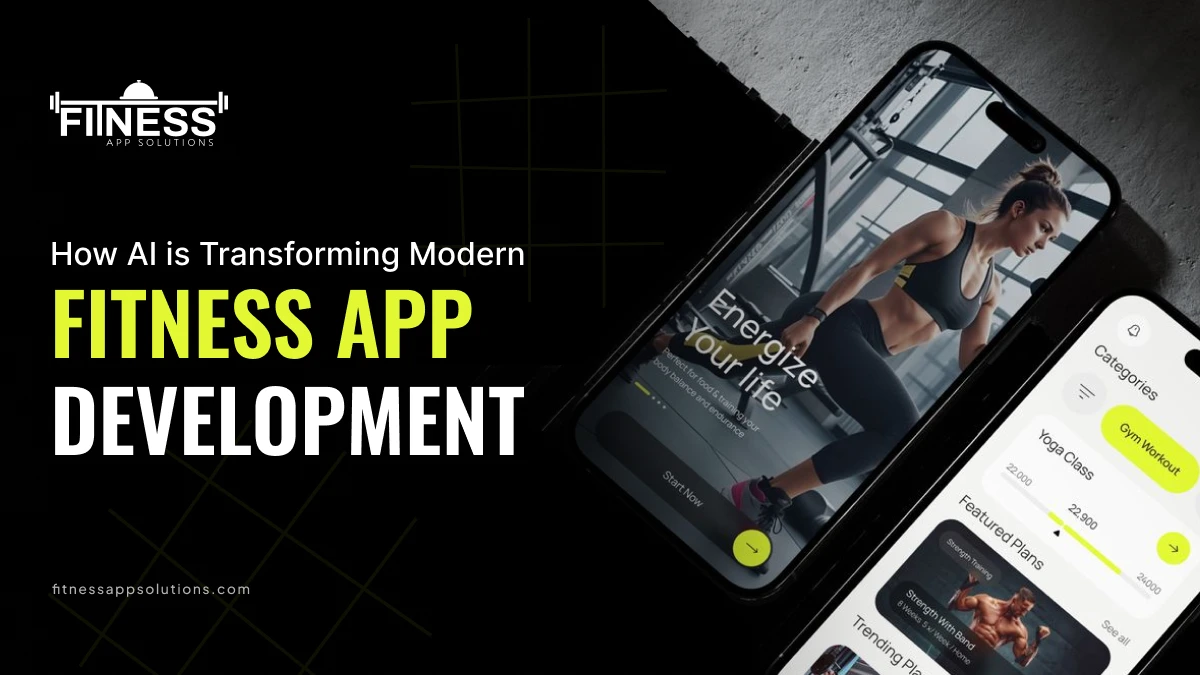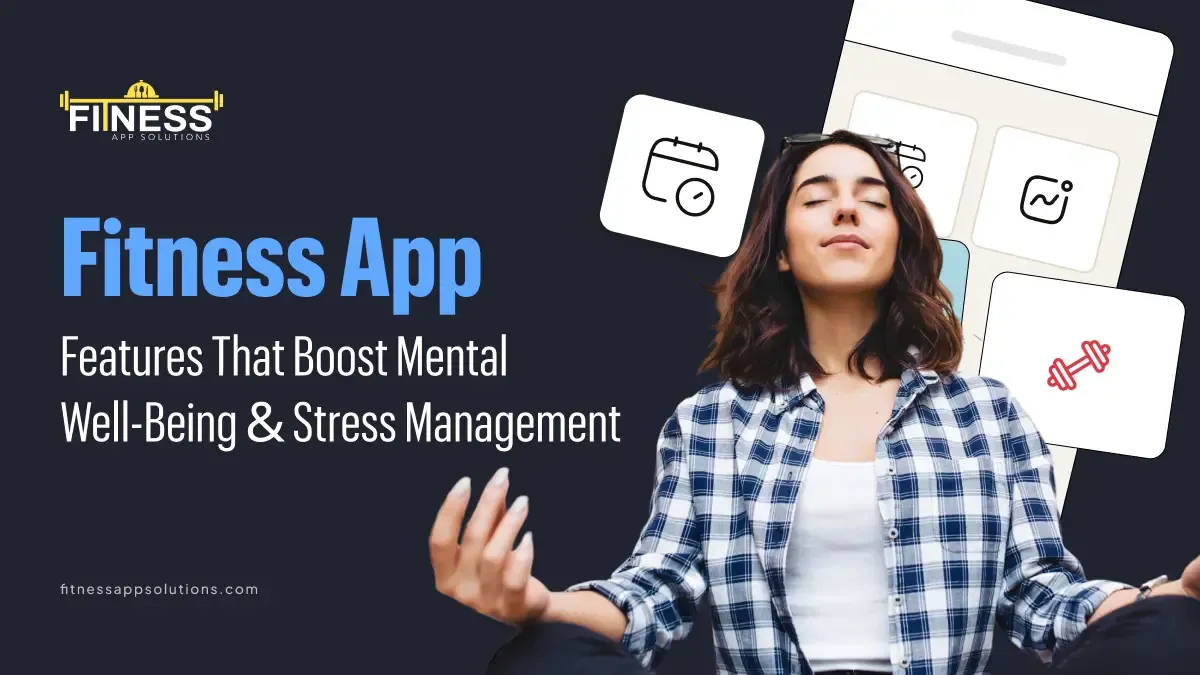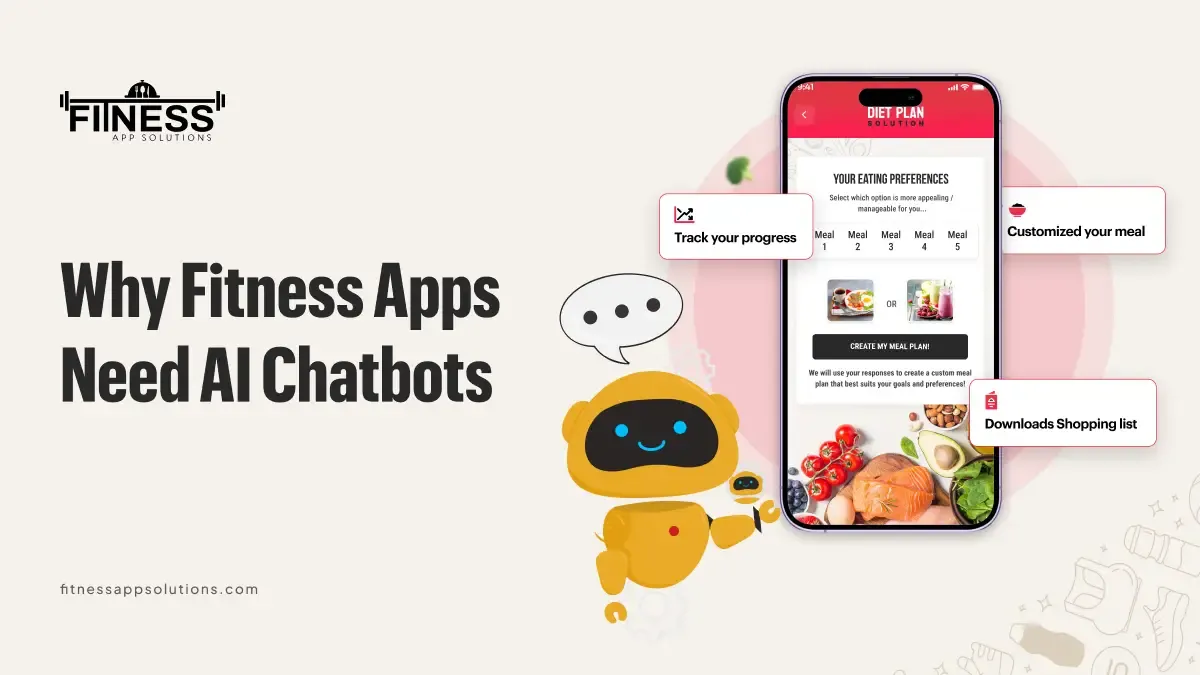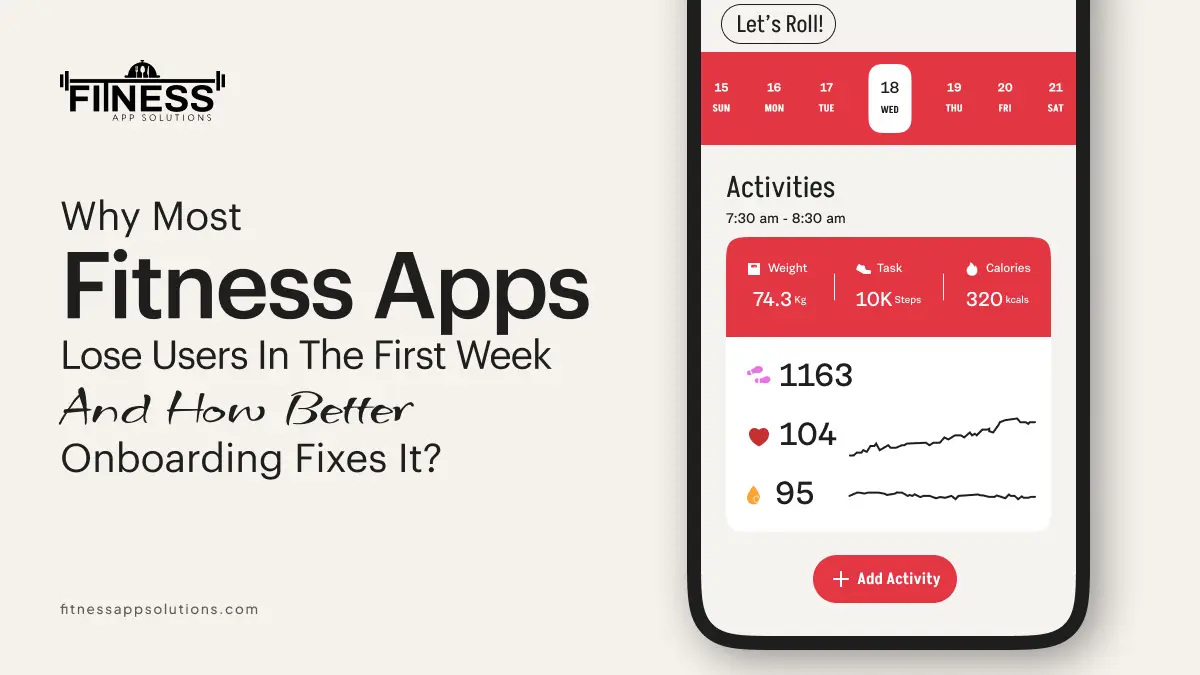With AI booming in every industry. AI-driven fitness apps from AI-based workout apps create special workout plans, and today’s wearable devices have mostly marked a modern age of intelligent fitness solutions that monitor and track heartbeat, calories, and every step. As per the stats, the revenue in the Fitness apps market is projected to reach $8.30bn in 2025. This guide will explore how AI is transforming modern fitness app development.
Understanding AI in Fitness
Artificial Intelligence (AI) refers to creating intelligent systems that can learn from data and make decisions accordingly. In fitness, AI analyzes user data—such as calories burned, heart rate, and workout habits—to deliver personalized and actionable insights.
Some of the key technologies driving this transformation include:
Machine Learning (ML)
Used to detect patterns in user behavior and improve workout and health recommendations over time.
Computer Vision
Enables devices to recognize and track body movements, helping ensure correct form and technique.
Natural Language Processing (NLP)
Allows virtual trainers and fitness apps to understand and respond to users in natural, conversational ways. By leveraging these technologies, AI makes fitness routines more adaptable and personalized.
Key Features of AI-driven Fitness Apps
Unlike traditional fitness apps that offer one-size-fits-all workout plans, AI-driven apps deliver highly personalized programs tailored to each user’s goals, fitness level, and progress. By analyzing user data and adapting it in real-time, these smart apps make the fitness journey more effective, engaging, and enjoyable—turning workouts into a dynamic experience designed for sustainable results.
Personal Recommended Exercise
Some of the most used features in AI-driven fitness apps are facilities for delivering personalized workout routines. Recommendations are given depending on the user’s level of fitness, progress, and goals. Whether the goal is to gain muscles, lose weight, or be fit, the apps ensure the user’s experience is customized and maximally effective.
Real-time Feedback
Integrating artificial intelligence in a fitness app will help provide feedback in real-time during any workout, allowing the user to know ways of adjusting form, pace, or intensity. This feature alone can make AI-powered apps somewhat like carrying a personal trainer in your pocket for guidance toward safe and effective workouts.
While gathering data through different wearables or manual input, the apps respond to changing conditions to optimize user performance in real-time.
Progress Tracking
Progress tracking has always been one of the main cornerstones of fitness apps, but AI-driven tools take it to the next level. These apps track traditional metrics like heart rate, steps, and calories burned and analyze long-term trends for deep insights.
For instance, AI can detect when a user’s performance has plateaued and recommend the best way to overcome it.
Nutritional and Lifestyle Guidance
Most AI-powered fitness apps provide personalized nutrition and lifestyle guidance in addition to working out. The AI considers diet calorie intake, general health statistics, and food preferences and offers tailored meal recommendations that align with the user’s fitness objective. It can also track sleeping, hydration, and recovery.
Easy Integration with Wearable Devices
The application is mainly connected with wearables, such as smartwatches or trackers, creating an integrated ecosystem where data flows seamlessly from one gadget to another. The active connection extends the accuracy of the apps and makes them more observant of the user, resulting in better results.
How AI-Driven Fitness Apps Are Redefining the Future of Health & Wellness?

Businesses can boost sales in 2025 by leveraging fitness apps. With technological advancements in fitness app development, companies must follow rising user requirements and grasp innovative solutions for future adaptation.
Let’s explore why AI-powered fitness apps reshape how individuals approach their fitness journeys:
Customization:
Conventional fitness could not fulfill the demands of every individual. Also, AI-based fitness apps generate highly customized plans based on the data collected from wearables, lifestyle habits, and goals.
Accessibility:
There is no longer a need for expensive personal trainers; they only need the internet and a smartphone.
Efficiency:
AI personalizes workout plans to optimize maximum results in the shortest possible time easily, a vital requirement for the busy professional.
Why is Building a Fitness App a Smart Move in 2025?
Due to technological advancements in artificial intelligence, the fitness industry is undergoing a massive transformation. AI fitness apps are no longer just tools to count steps or calories; they are sophisticated platforms that offer customer fitness coaching, real-time feedback, and even good mental health support.
Therefore, the demand for AI-driven fitness apps is skyrocketing, developing an exciting opportunity for entrepreneurs and developers to build tomorrow’s best AI fitness apps.
How can you develop an AI Fitness App?

Consider Customization
One of the standout benefits of AI-powered fitness apps is their ability to offer a truly personalized experience, unlike traditional apps that rely on generic, one-size-fits-all routines.
AI-driven platforms analyze user data such as goals, fitness levels, preferences, and progress to create customized workout plans. This level of personalization not only improves results but also keeps users motivated and engaged.
Special Attention to Data Privacy and Security
In 2025, users are more worried about their security and sharing their personal information, especially regarding fitness and health. Trust is a vital factor in the success of an AI-driven fitness app.
Use AI to solve
The best AI fitness apps are developed to resolve genuine issues users face. Your app must address these challenges, whether they’re a lack of time or confusion about the proper form.
Special Attention to Data Privacy and Security
In 2025, users are more worried about their security and sharing their personal information, especially regarding fitness and health. Trust is a vital factor in the success of an AI-driven fitness app.
Embrace Seamless Integration
Advanced and modern users expect their fitness apps to integrate smoothly with other tools and devices they already utilize. Consider supporting wearables, health-tracking platforms, nutrition, and sleep apps for a holistic wellness approach. Therefore, by creating a seamless, interconnected experience, your app becomes a central hub for users’ fitness journeys.
Conclusion
In conclusion, AI is not just an add-on to fitness apps but a core driver of innovation, making fitness journeys more engaging, efficient, and tailored to individual needs. As technology evolves, we can expect even greater personalization, convenience, and user interaction advancements, further enhancing the overall fitness experience for users worldwide.
Frequently Asked Questions
1. How will AI change the fitness industry?
AI will revolutionize the fitness industry by offering personalized workout plans, real-time feedback, and enhanced data analytics. With AI, fitness apps can track user performance, adjust exercises based on progress, and provide tailored health advice.
Additionally, AI will drive innovation in virtual personal trainers, nutrition recommendations, and injury prevention techniques, ultimately making fitness more accessible and effective for individuals at any fitness level.
2. How is AI transforming software development?
AI transforms software development by automating coding processes, optimizing debugging, and improving testing and quality assurance. With AI tools, developers can speed up the process of writing, reviewing, and maintaining code.
Machine learning algorithms also enable predictive analytics, helping developers identify potential issues and performance bottlenecks before they arise. Additionally, AI enables creating more innovative, intuitive applications that can adapt to users’ needs in real-time.
3. How is technology changing the fitness industry?
Technology is changing the fitness industry by making workouts more interactive, personalized, and data-driven. Wearable devices, fitness trackers, and innovative equipment provide real-time metrics and user health insights. Virtual fitness classes, on-demand training, and AI-driven apps offer convenience and flexibility.
With advances in augmented reality (AR) and virtual reality (VR), fitness is becoming more immersive, making exercise more engaging and motivating. This shift is not only making fitness more accessible but also improving overall health outcomes.
4. Will AI replace fitness trainers?
AI is unlikely to replace fitness trainers fully but will complement their work. While AI can provide personalized workout plans, track progress, and offer guidance, the human touch of a fitness trainer is still essential for motivation, emotional support, and nuanced adjustments.
AI can assist trainers by automating specific tasks and providing data-driven insights, allowing them to focus on the personalized, motivational, and emotional aspects of training.



